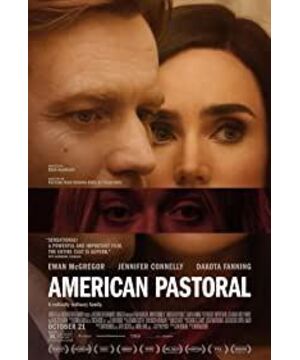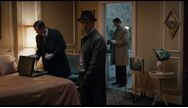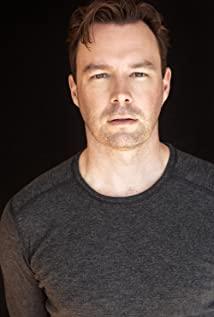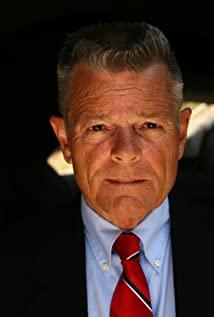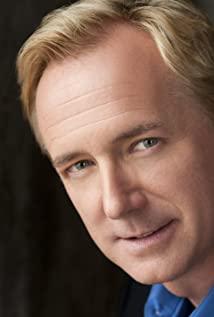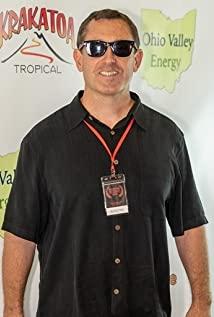The scene that left a deep impression on me in the film is that after the mother's argument with her daughter during the day (the daughter was insulting and spat at the mother with hamburger residue), the "great" father comforted his wife, and the mother said, you Know what I would have done to my mom and dad when I was a kid? As a result, the male protagonist teased her like a joke and covered it up like that! I think the problem arises from this family relationship, in which fathers and daughters are always united, and mothers are intruders in the father-daughter relationship.
Then, the family showed the cruelty of war (even unintentionally) to the young daughter prematurely. When the daughter did not have any outlook on life and values, the atmosphere of talking about politics in the family was also very strong, especially the girl's Grandpa, being a Jew pays too much attention to this. All kinds of things, in adolescence, all this is like the cumulative addition law, which is equal to what the daughter does later.
This is my comment under a film review. I think it is basically the most direct and straightforward feeling I first watched the film:
such a father deserves such an ending, doting on his daughter and not even standing when his daughter insulted her mother. When she came out to discipline her, this boundless love made her daughter even more arrogant and arrogant. She felt that she could achieve everything. To put it bluntly, Fanning's daughter had no tutoring at all. Who is to blame? Of course parents. These parents are still talking about their poor LITTLE GIRL after their daughter's bomb incident. They can make bombs and still little girls. It can be seen how morbid this kind of uncontrolled petting is!
The attitude and ability of the parents to deal with the problem changed the daughter who loved cows so much. Later, she even insulted her mother and knew that she was a cow. Because the father did not discipline in time, this kind of psychological extreme became more and more exaggerated. The father deserved what he deserved, and the mother, in my opinion, was an ordinary woman who married the wrong person. The husband did not stand on his side in education, he would only mediate in the middle. Later, the husband became obsessed with looking for his daughter and completely ignored her, which made her eventually too. Suffering from mental depression. Later, I carried out self-spiritual redemption through plastic surgery, let go of the past, and cheated on my husband's continued ignorance (the husband is addicted to finding his daughter, I think in his heart, the daughter is much heavier than the wife?). In fact, when I saw the unbelievable face of the male protagonist when I saw my wife cheating, I had an inexplicable pleasure. I felt that the screenwriter should put more suffering on the male protagonist. This kind of so-called kindness, the so-called fatherly love It really disgusts me. This kind of fatherly love not only harms my own family, but also brings sorrow to more families. Because your education failed, do you let other families pay for it? This kind of love, even if the father waits for his daughter to come home and wait until the end of the day, I feel disgusting and deep.
View more about American Pastoral reviews


